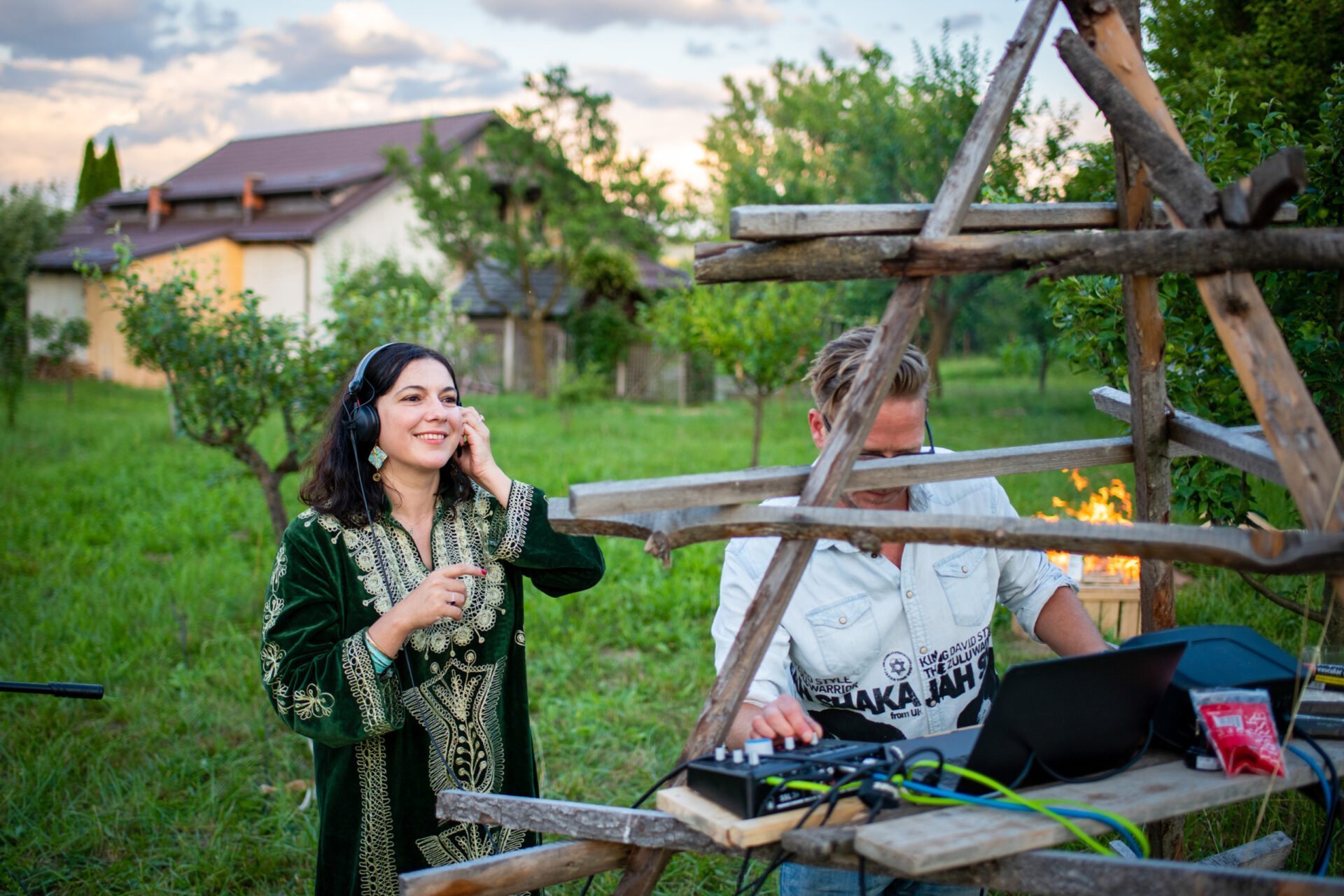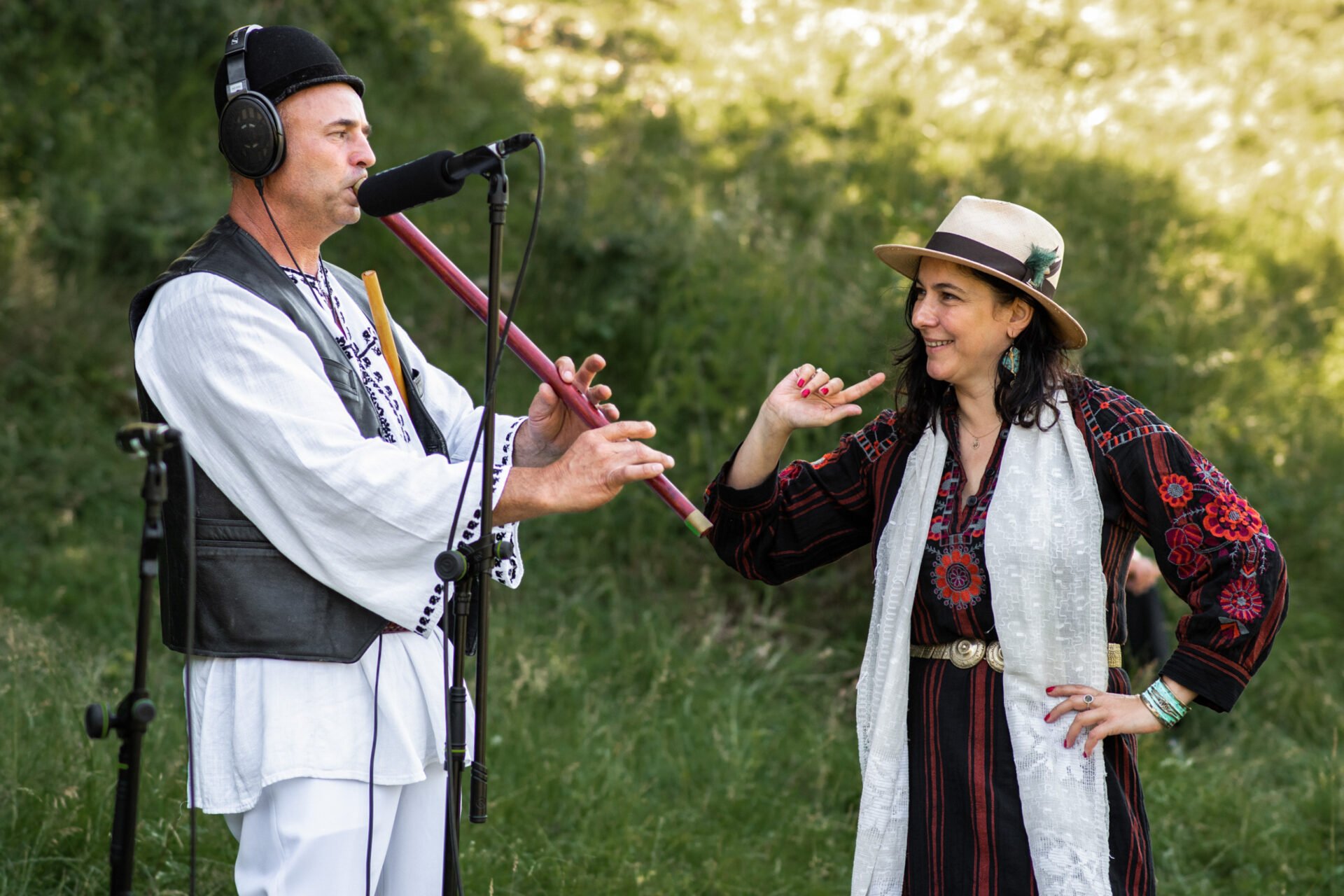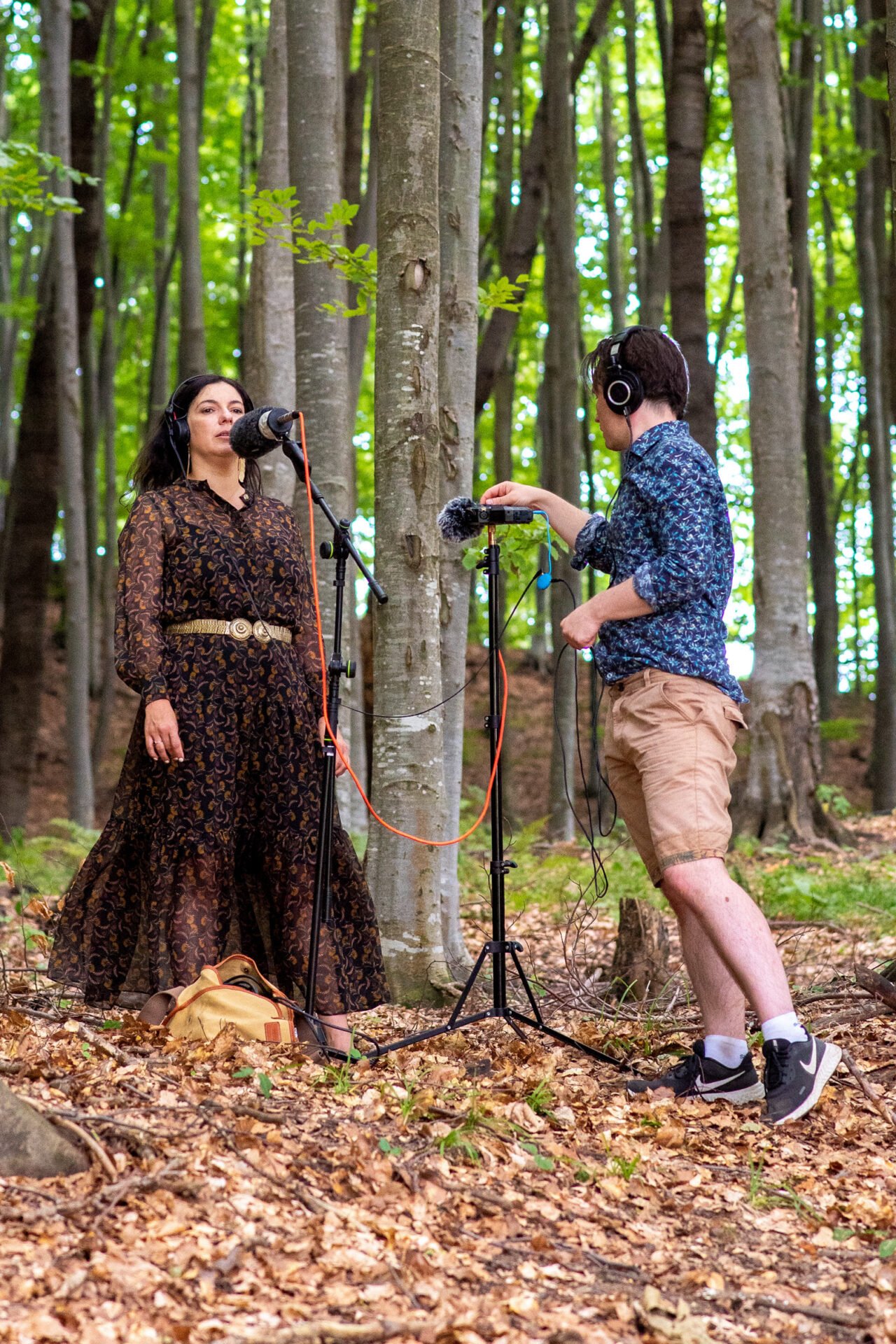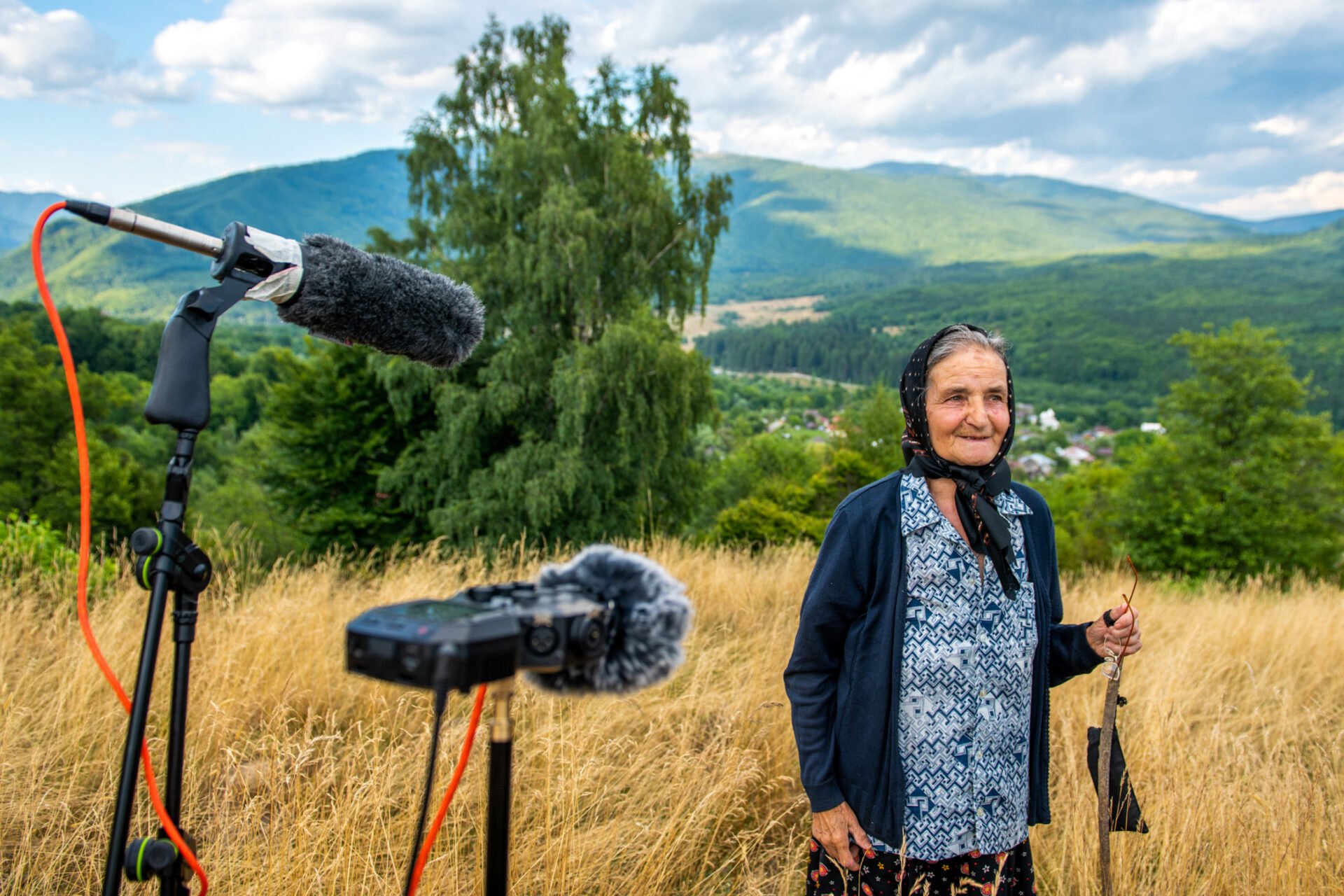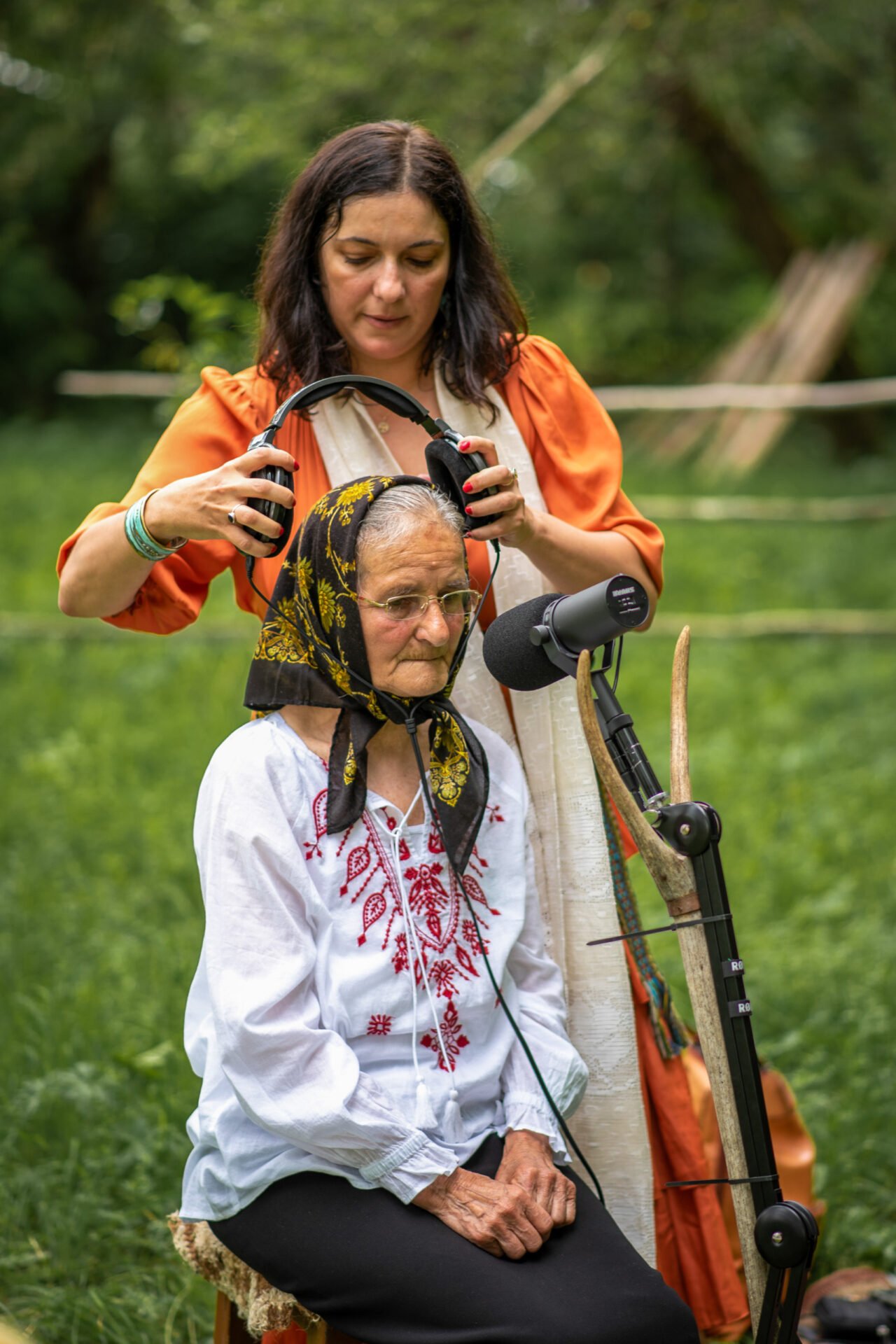Words: Lavinia Gogu
Photos: Marius Sumlea
August 2023
As an old saying goes: in life, you should manage to build a house, have a child and plant a tree. DJ and music producer Nicoleta Cărpineanu has done them all. Through her social involvement in forest conservation, she has helped plant over 150,000 trees throughout the UK and Romania.
For Nico, better known by her stage name, Nico de Transilvania, the forest is the cradle of her childhood, a source of creative inspiration and a space to develop a noble mission: the preservation and reforestation of degraded landscapes.
Nico migrated to the UK 25 years ago. She now lives in Brighton with her son Rumi. But as she spent time building a life there, while traveling the world producing electronic music and teaching yoga, her soul stayed at home, in Romania. The artist composes a musical style she calls “folkloric electronic.” She promotes Transylvanian folklore treasures through her music, together with local artists who still preserve Romanian traditions, such as the sound of the flute.
The artist founded her own production house, Musică Without Frontiers, in 2018. After roaming the native plains, collecting stories and sounds, she composed her first album, Be One. She founded Forests Without Frontiers in 2019, a charitable initiative whose mission is to replant forest landscapes. She was named Ambassador of the Făgăraș Mountains by the Foundation Conservation Carpathia in 2021, so she initiated campaigns for raising funds for planting trees and promoted the initiative of regenerating degraded landscapes to spread awareness regarding the cause. And, in 2022, she completed her latest album, Interbeing.
I met Nico in the old town of Bucharest over a coffee. Although on this occasion she was coming to her home country in a difficult time, to attend her mother’s memorial, she explained to me that she also wanted to go to Nucșoara, a commune in the northern part of the country at the foot of its highest peak. She felt the need to be surrounded by nature to record forest sounds and folklore elements for her upcoming album, a creative residency funded by Cambridge University and the Romanian National Foundation of Culture (AFCN).
I admired her floral dress, paired with a studded denim jacket and a scarf with orange tassels, an outfit that inspires a bohemian air – a free spirit. I could tell that she has a high degree of empathy even before I found out that she had devoted herself to charity work, just from the way she addressed the waitress. She told me about her musical journey and her desire to help the Romanian forests flourish. But she also shared a glimpse into the events that inspired her to start the charity and gain a new perspective in life.
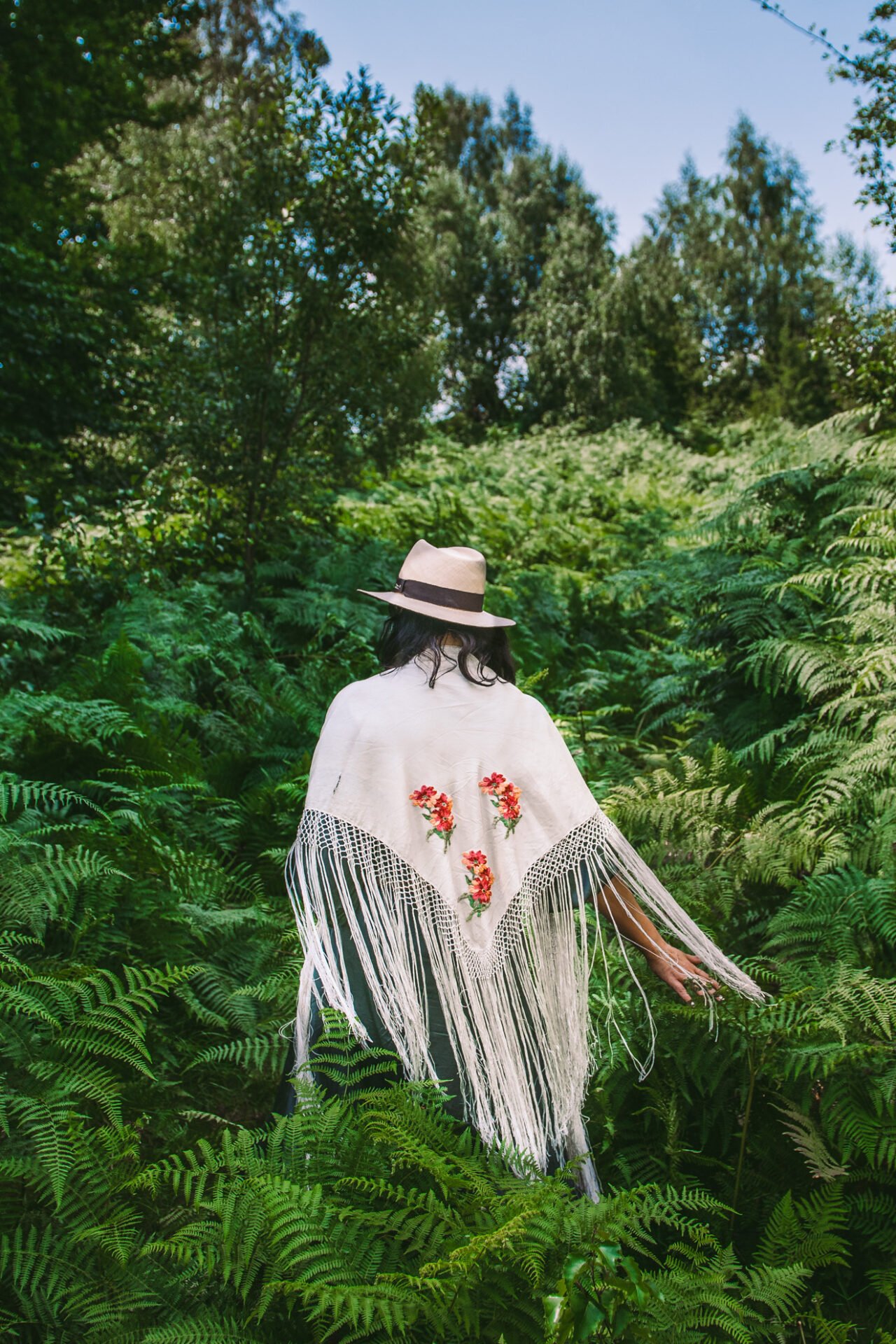
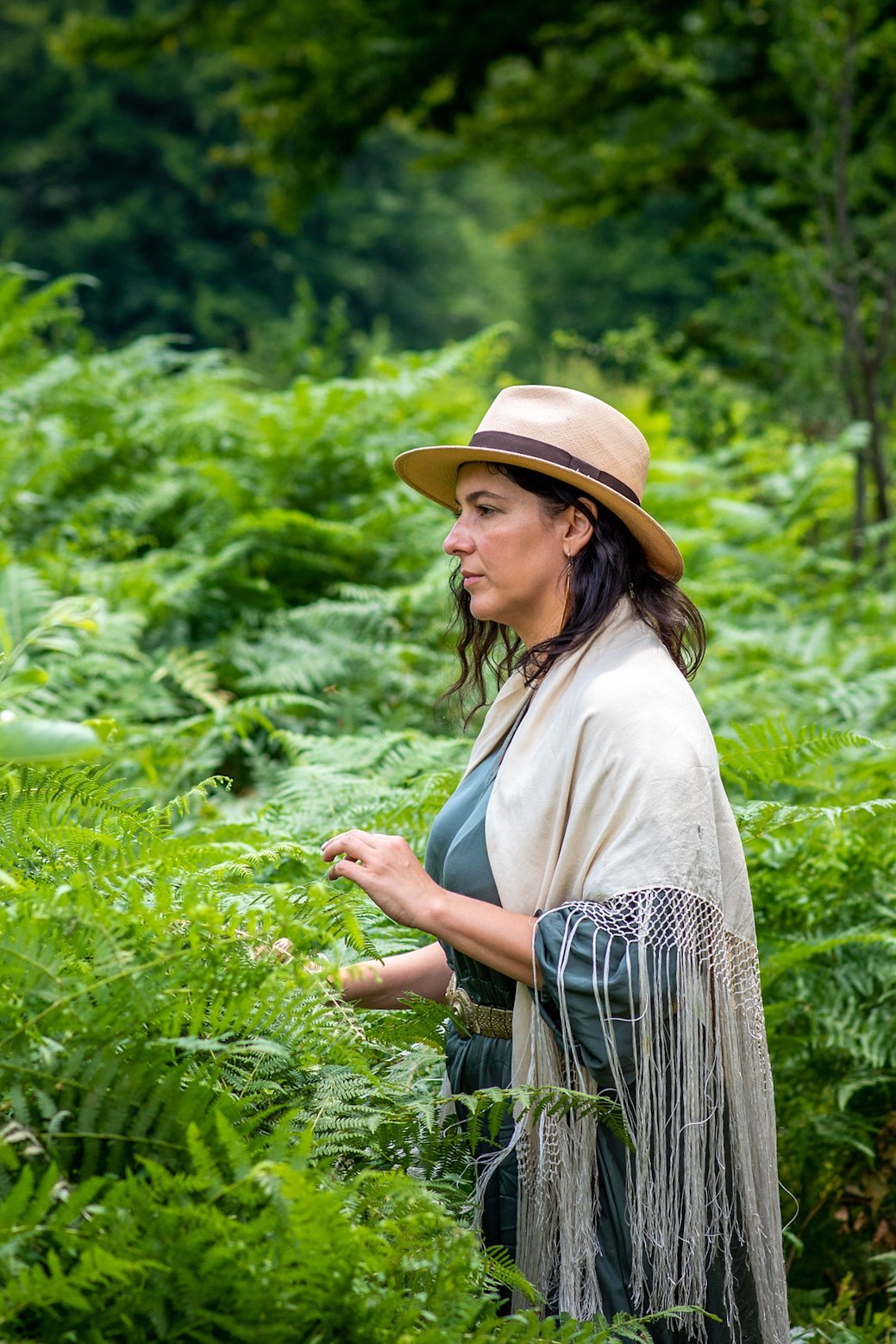
It’s been two decades since you moved to England. Tell me about the time you left Romania.
I have always had an altruistic component. I started doing volunteer work at the age of 17. I would go to the reading room to study after class, and then to an orphanage in Zalău, in Transylvania, close to my hometown, to spend time and help with the children there – even just to hug them. Through that experience I got in touch with a charity organization in the UK. The charity invited me to speak in schools and in locations where they were raising funds. So, when I turned 18, I went to England to join their team as a volunteer while studying – and stayed in the UK because I fell in love with an Englishman.
What memories did you leave Romania with?
I grew up at the foot of the Meseș Mountains, surrounded by nature, in a village called Ortelec, with grandma Rozalia. I learned a lot from her, including how to live in harmony with nature, the forest, traditions, songs and their local stories. Grandma died at 80, when I was 10 years old. In her last years she couldn’t walk much, so she spent more time with my family. She had long white hair, and I remember combing it, then making two pigtails and tying it into a bun. She sang me songs from the old days and told me about her many children. She raised 15 children, 10 born to her and five step children. I was never bored with her.
After a few years in the UK, when I was 21, I started missing home so much that I wanted to go back. But I realized that I could actually do more for my country by living in the UK. Now, when I miss home, I make Romanian dishes. I enjoy making sarmale and polenta.
How is your life in Brighton?
I have now lived in Brighton for 20 years. Life here is serene. I live by the sea with my boy, who is 18, soon going to college. Brighton is almost an hour from London, and it’s also where I have the office for the NGO I launched four years ago, Forest Without Frontiers. It’s a multicultural city – with people from all over the world – and musically and artistically it’s a rich, bohemian and eclectic place.
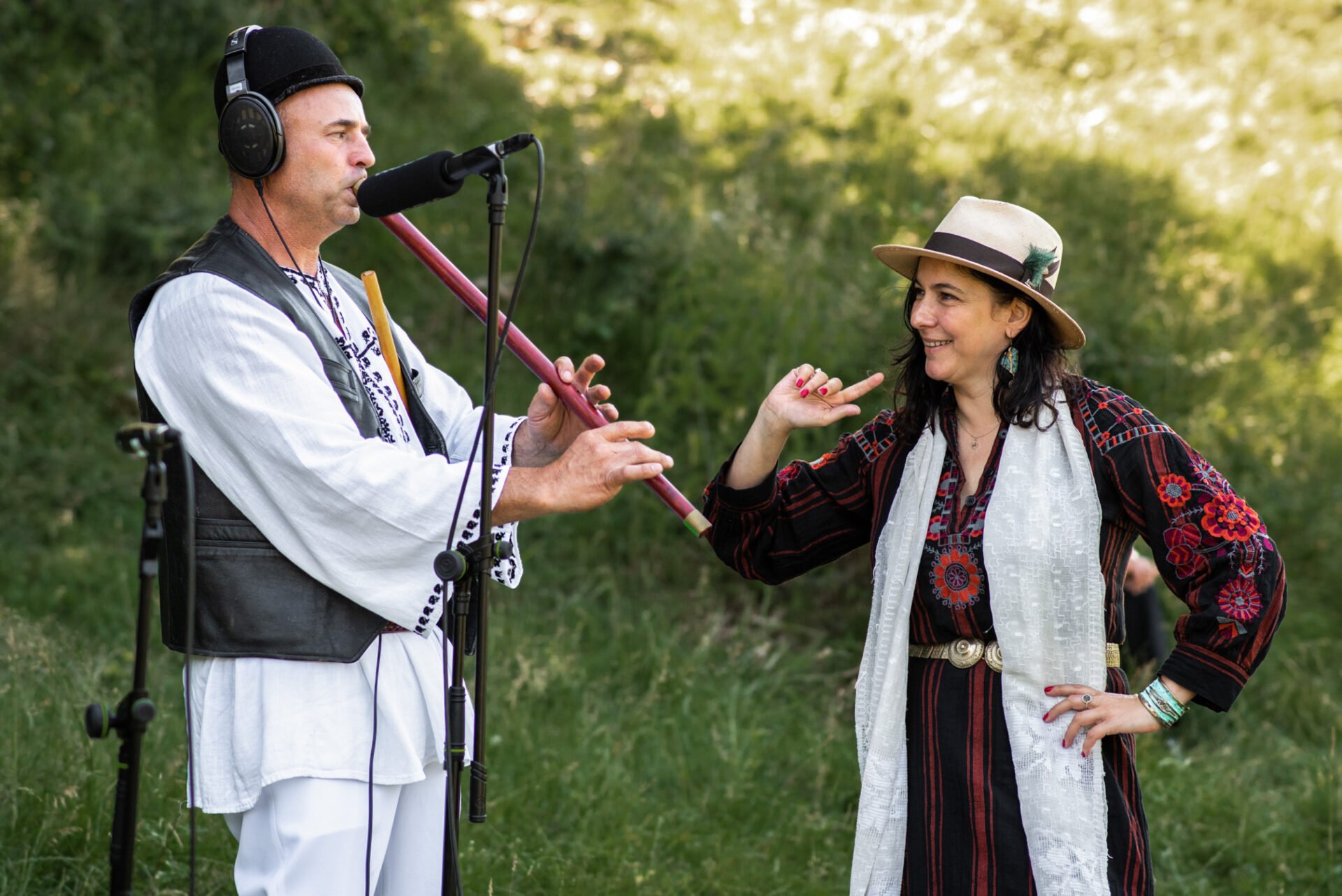
Tell me how you got into the music scene.
My father worked in hospitality, he was a chef. My mother was passionate about music; she was blessed with a special voice and used to sing at our church. I was basically raised with a brass band, with ancient songs and fiddlers.
When I arrived in England, I studied choreography, dance therapy, performing arts, and communication studies. Practically, all the courses you couldn’t do here. The passion for djing started during that period. I had a friend who loved music, and we bought together a mixing desk, and started mixing. I can say that this passion came from the idea of creating mixes that I would like to dance to. So I started composing my own collection of songs at home.
I realized I liked it, and a few years later, I started mixing Balkan music.
So how did you decide to start mixing Balkan music?
I went to Asia with my friend Nick Carling, who is now a DJ in Brighton. The journey began in Sri Lanka, then I was in India and Nepal, then returned to Sri Lanka. I did my first month-long intensive yoga class there while mixing at night. During that time, I rediscovered a part of me I think I had forgotten since I was a child: a kind of emotional freedom. When I returned to England, Nick gifted me a CD of Fanfara Ciocârlia (a well-known band of Balkan music). He said: “Nico, I know you miss home, look what I bought you.” I started mixing it at parties – at that time we organized a lot of parties. And I bought more Balkan music CDs.
I then traveled for 10 years all over the world and mixed Balkan electronic music. But until DJing became more demanding, I continued my work as a yoga teacher whilst doing charity work. And I ended up working as an Associate Producer on the movie Wild Carpathia (a documentary series exploring Romania’s panoramic Carpathian Mountains) for at least four years. I contributed to the first three episodes. We did research, chose stories, film locations, and selected music. And that’s how I discovered some people who are doing good work here, in Romania, to preserve the environment and forests.
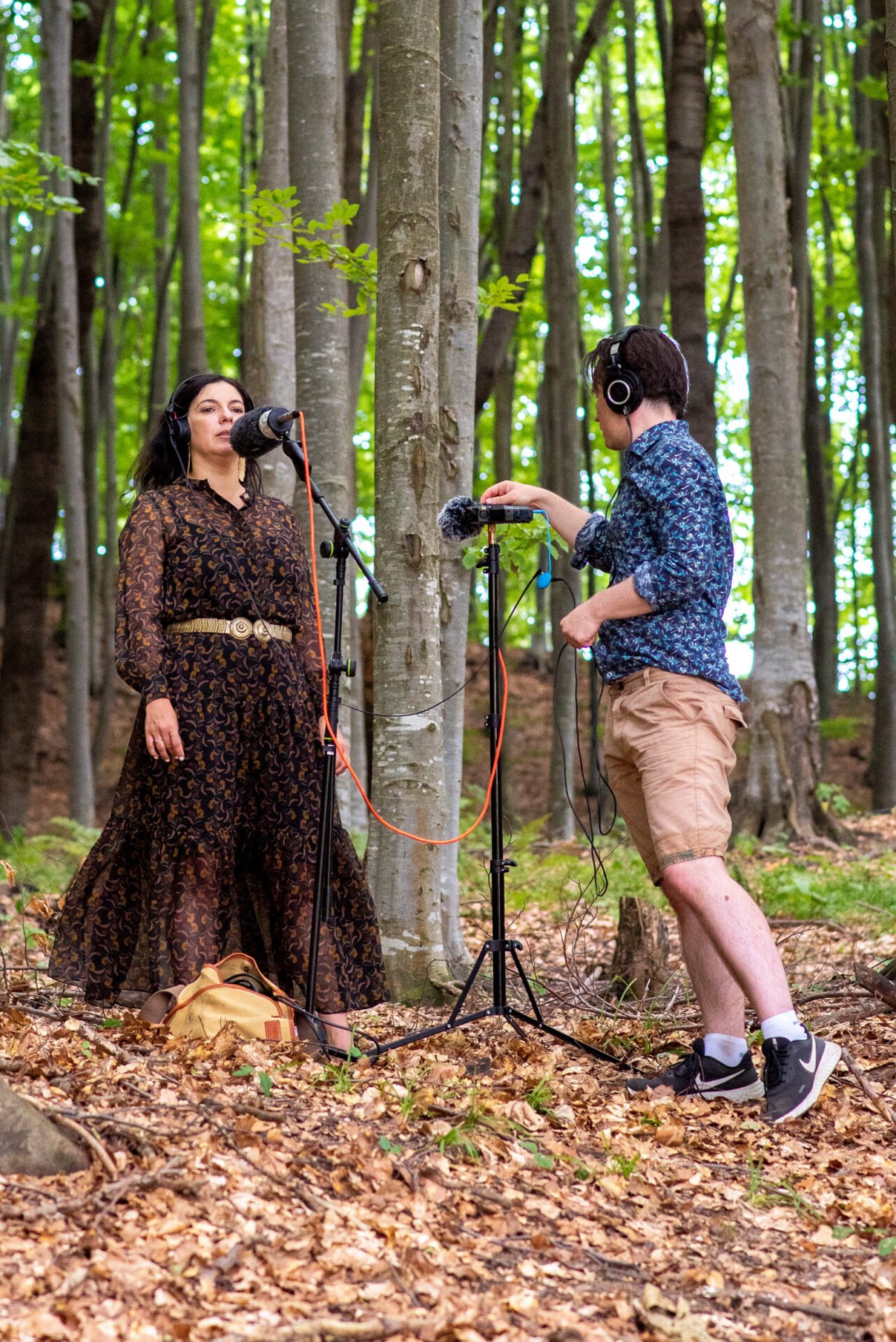

Why did you choose to call yourself Nico de Transilvania?
I’ve been calling myself that for almost 12 years. I was in Sydney, and I met some locals who were impressed that I was from Transylvania because they couldn’t believe that this place actually existed. So I decided to name myself Nico de Transilvania to represent my place of origin.
How would you describe your musical style and the music you compose?
I love hip-hop, funk, blues, and electronic dance music. Folkloric elements are at the core of the music I produce. I call it electronic folk with jazzy notes. I really like the trumpet and saxophone. I mix a melange I call “global electronic music.” Traveling around the world, I realized how interconnected music is: the Egyptian flute is similar to that of the Indian, whilst reminding me of many Mexican and Romanian elements.
I love playing at cultural events. I once played at the Art Dubai Fair. I started with a song from Pakistan, followed by a song from Romania, then one from France, after that, songs from Egypt and India. After the show, someone came to ask me about a song he liked a lot. I told him the song was Palestinian and then I learned he was from Israel. That’s how I came up with the name of my label: Musică Without Frontiers. There are no borders on the dancefloor, we are all one. And that’s where I got the inspiration to name my first album Be One, which is about unity and humanity.
What can you tell me about your second album?
Interbieng is a project funded by AFCN and the University of Cambridge through the Endangered Landscapes Artist Residencies program. I worked with Silvia Dan, who sings on the album and whom you see in the photos. The entire album is recorded in nature, right in the Nucșoara area, where we plant trees.
Both music and charity work are my passions, and I am happy I have managed to combine them, along with my love for tradition and the care for the elderly.
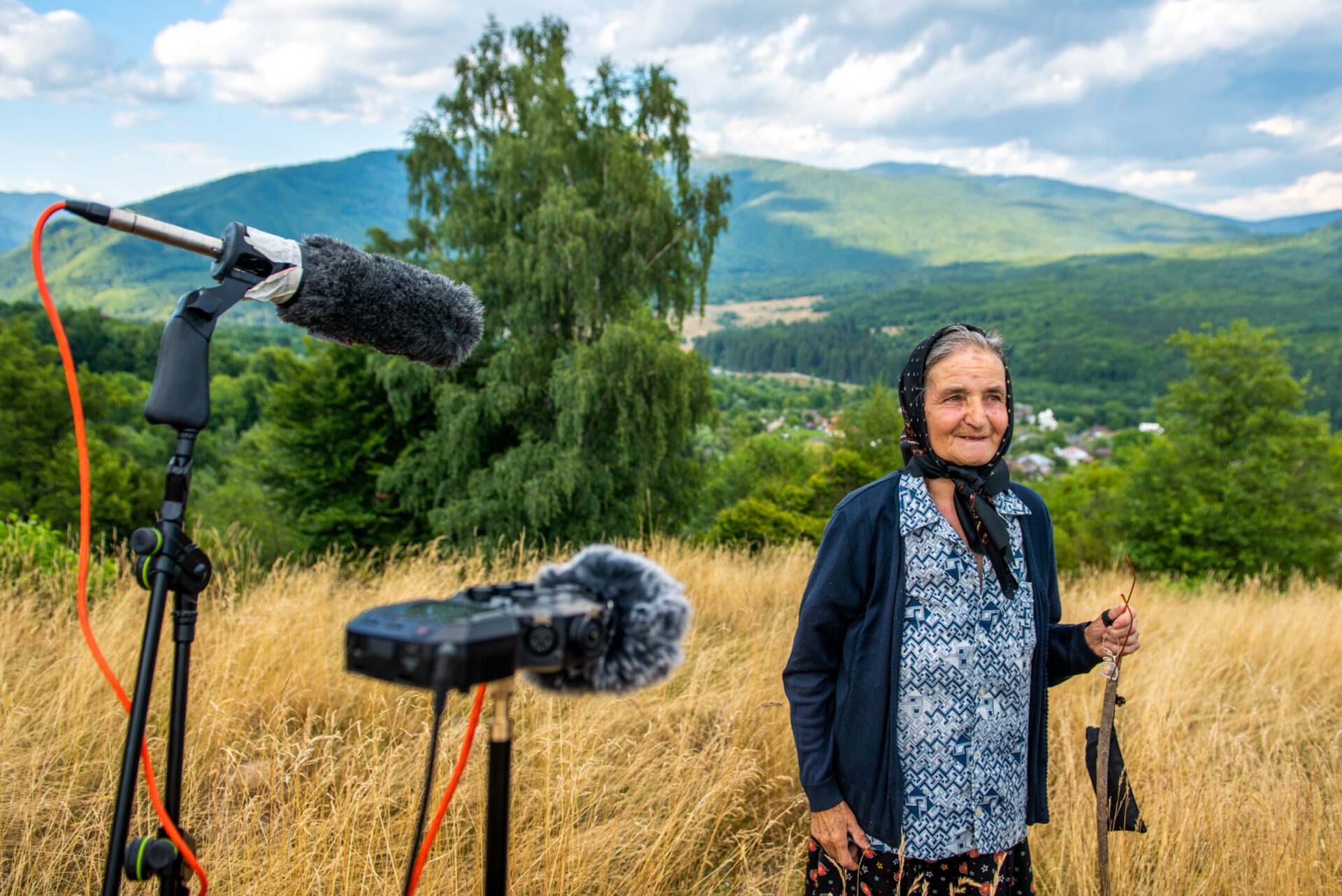
How did you become involved in protecting the Romanian forests, and how is your music connected?
Growing up with a strong connection to nature and inclination towards charity work, I always felt the need to protect our forests. And merging it with music was very natural to me. In 2018 I was at Sarmisegetusa, in the Orăștiei Mountains, making a project to preserve the virgin forests in that area, and I talked to a journalist who suggested that I listen to a flautist from the area. That’s how I met Babu Ion, the artist who inspired my initiative – and one of the flute players I collaborated with for the Be One album. He took his flute and said that I must listen to it in the middle of the forest because that’s the only way I would “feel the magic.” He was incredible. His flute recital was inspiring, but also him as an artist and human, so I promised him that I would find a way to make his talent known.
Just a few months later, we got funding and started recording together with other whistlers in the area. They suggested that I also meet Buna Ana, who is the village singer. Unfortunately, when I met Buna Ana she had lost her voice. But luckily she is also a talented writer of poetry, so I asked her to write me a poem. This is how the first song from the first album, “Doina,” got created.
While spending time there, I spoke with many locals who all told me of their worries regarding deforestation. So I decided to donate everything I earned from the album to plant trees in the Orăștiei area.
Unfortunately, we weren’t able to plant any trees in the mountains of Orăștie. We couldn’t find an area in which a protection contract could be signed to guarantee that they wouldn’t be cut. Luckily I already had contacts from working with Wild Carpathia, and that’s how we were able to set up Forest Without Frontiers. We now plant trees in protected areas.
How did the local people with whom you created the album react when they listened to it?
I presented the album to them in an avant-premiere. I surprised Babu and Buna Ana, for her 90th birthday, by showing them the making of the film. Both were delighted. It was really a highlight in my life. Especially since they couldn’t believe that people appreciate their traditions, that they wanted to buy the album and that sales were donated to plant trees.
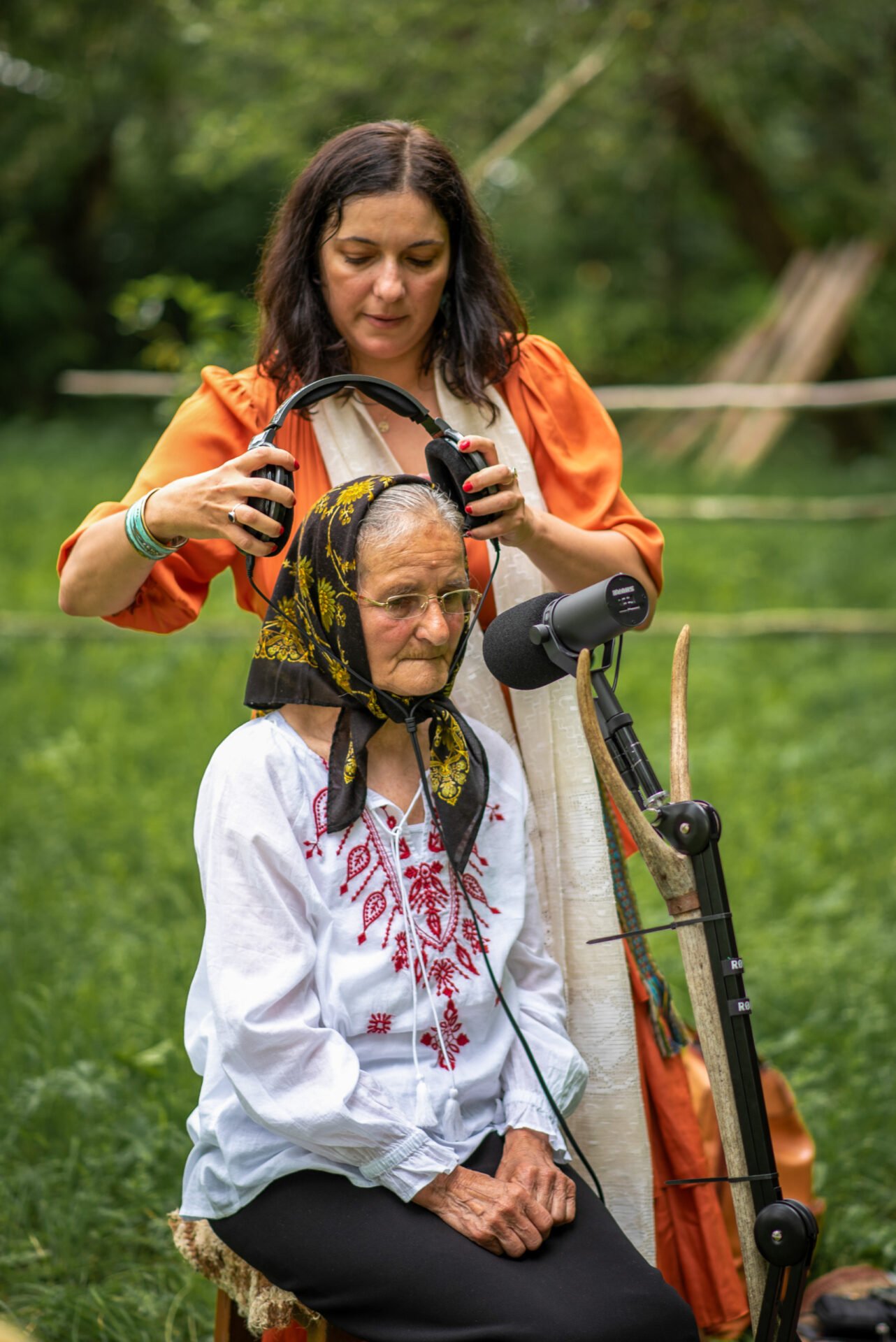
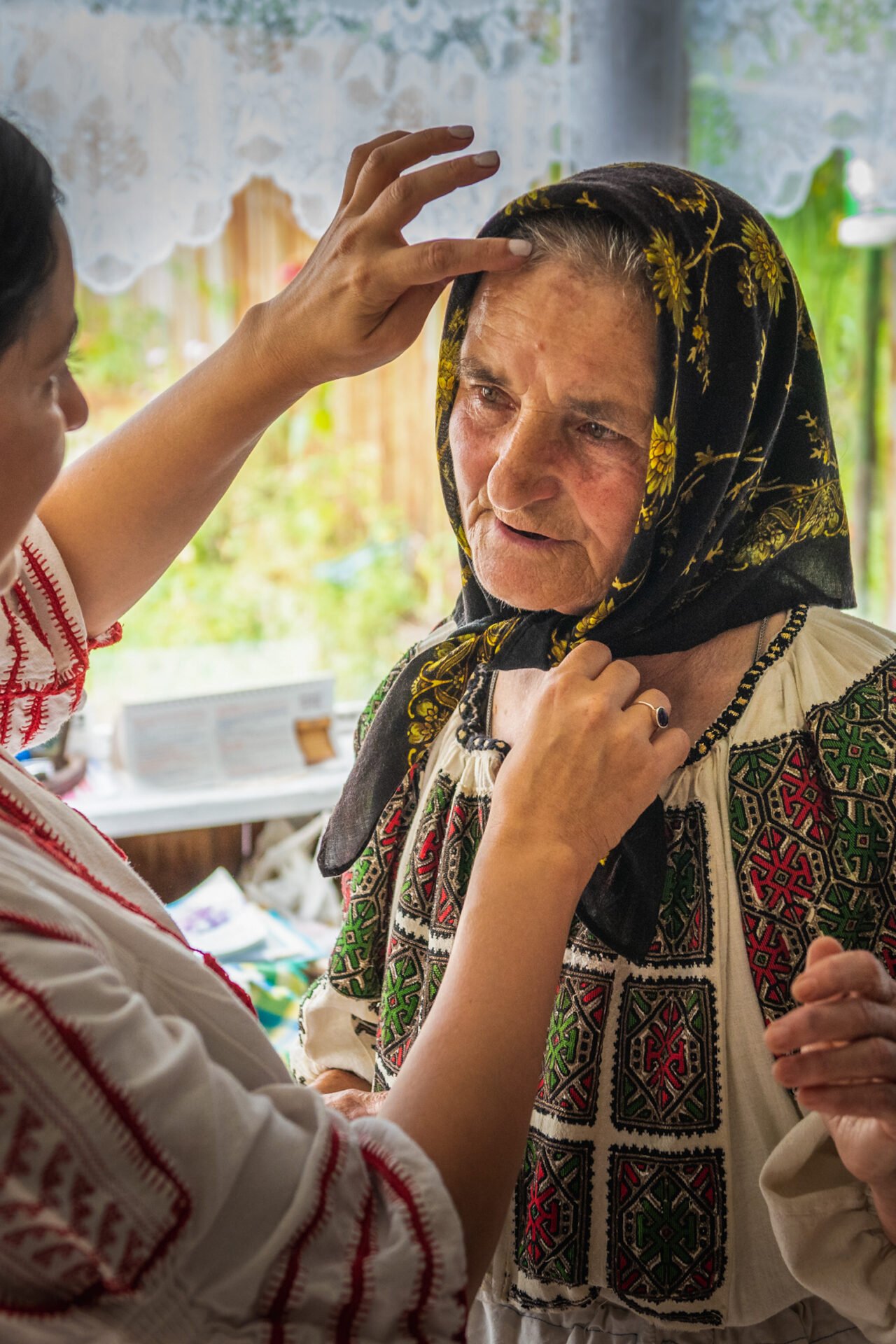
In which other ways are you involved to help the local community?
During the pandemic, for my 40th birthday, I organized a lockdown party over zoom at my house called Music for Earth. Along with musicians from all over the world, I mixed from my living room to spread joy and have some fun. We also collected funds and sent food boxes to 51 elderly people for a month every week, to support the elderly in the Transylvania area.
What inspires you to be so dedicated to charitable activities?
Eight years ago, I woke up admiring a beautiful beach in Phuket, Thailand, from the balcony of a high-end hotel. It hit me that I was living in a bubble. The night before, I had played at a fancy wedding, and though I had put on a good show, I felt completely empty inside. That is when I decided to focus more of my time on charity work – since it brings me the greatest joy. My lifetime carbon footprint had also accumulated, and I started becoming more aware of the impact climate change has over our environment.
There was also the time when my son turned 16. I kept thinking about what to get him for his birthday. At that time, I was in the middle of deciding what to do with some money I’d received from selling a piece of inherited land. I asked my son for advice: “Should we invest in a fundraising campaign to plant trees, or go a different path?” To which he told me: “Mum, we must invest in the trees.” So we planted 15,000 trees for his birthday.
How many trees have you indirectly helped to plant so far?
I have also been involved with planting trees in the UK. To date, we have indirectly planted 150,000 trees in the UK and Romania, thanks to music.

